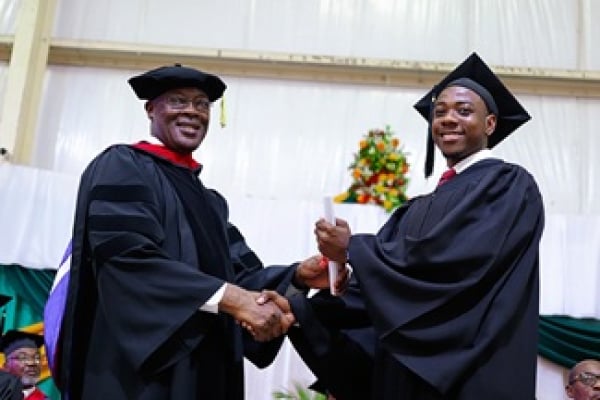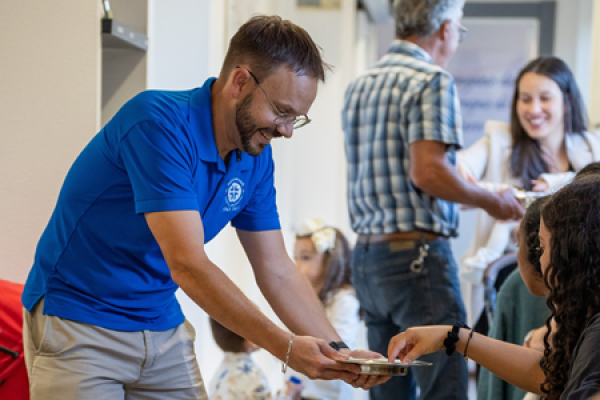
January 14, 2015
Love: How Is It Cultivated? (Part 2)
Read the series: Part 1 | Part 2 | Part 3 | Part 4
Discipling others in love presupposes we are growing in our love for God and others. Never to be taken for granted, we know that we grow through God’s Spirit, God’s Word and God’s people. Yet the presence of these gifts does not guarantee our growth. Our attitude toward each will determine the effectiveness of God’s transforming work, growing us to love a little more like Him.
Inviting God’s Spirit to examine us | The Holy Spirit is the great searcher of our hearts (Psalm 139:23-24). We must spend prolonged time with Him because our heart has an unusual capacity for deceit (Jeremiah 17:9-10), particularly in two situations:
And when we are fine, when there are no symptoms of an illness, we don’t go to the doctor. In his book Inside Out, Larry Crabb wrote, “If it seems unreasonable to ask God to search me when someone else is blatantly wrong, then it certainly seems unnecessary to invite God’s probing look when everything is moving along pleasantly.”
But we must pursue intimacy with God, who transforms us in good times and bad.
Reading God’s Word to better love God and others | When we read or teach God’s Word, how often do we ask, “What does this teach me about loving God and my neighbor?” The sword of the Spirit wants to expose our self-protective ways that keep us at arm’s length from God and others. We immerse ourselves in the Word to better know the holy love of Jesus so as to better love others — which requires understanding something of our own self-protective tendencies. And for this, strangely, God and I and His Word are not enough; love can only be cultivated in community.
Meeting with God’s people to worship Him and serve one another | God is an eternal community characterized by perfect love, and He created us to join Him in His community, united in love with Him and one another. Hebrews 3:12-13 describes a community life in which relationships are characterized by continuous encouragement. That presupposes an atmosphere of family and trust — which grows very slowly and not in a big group. It is a trust that dismantles our illegitimate self-defenses and enables us to give ourselves more freely to others, making our faith communities a safe haven for rest and growth.
Making disciples is ultimately founded upon our own trust in God’s love that enables us to help others to live and love like Jesus, even those who are our enemies. A growing trust within our communities of faith enables our love and unity with each other to deepen, showing the world something of the Father’s love in sending His Son (John 17:21-23).
Discipling others in love presupposes we are growing in our love for God and others. Never to be taken for granted, we know that we grow through God’s Spirit, God’s Word and God’s people. Yet the presence of these gifts does not guarantee our growth. Our attitude toward each will determine the effectiveness of God’s transforming work, growing us to love a little more like Him.
Inviting God’s Spirit to examine us | The Holy Spirit is the great searcher of our hearts (Psalm 139:23-24). We must spend prolonged time with Him because our heart has an unusual capacity for deceit (Jeremiah 17:9-10), particularly in two situations:
- When we have been hurt or disappointed by someone or something
- When we are fine
And when we are fine, when there are no symptoms of an illness, we don’t go to the doctor. In his book Inside Out, Larry Crabb wrote, “If it seems unreasonable to ask God to search me when someone else is blatantly wrong, then it certainly seems unnecessary to invite God’s probing look when everything is moving along pleasantly.”
But we must pursue intimacy with God, who transforms us in good times and bad.
Reading God’s Word to better love God and others | When we read or teach God’s Word, how often do we ask, “What does this teach me about loving God and my neighbor?” The sword of the Spirit wants to expose our self-protective ways that keep us at arm’s length from God and others. We immerse ourselves in the Word to better know the holy love of Jesus so as to better love others — which requires understanding something of our own self-protective tendencies. And for this, strangely, God and I and His Word are not enough; love can only be cultivated in community.
Meeting with God’s people to worship Him and serve one another | God is an eternal community characterized by perfect love, and He created us to join Him in His community, united in love with Him and one another. Hebrews 3:12-13 describes a community life in which relationships are characterized by continuous encouragement. That presupposes an atmosphere of family and trust — which grows very slowly and not in a big group. It is a trust that dismantles our illegitimate self-defenses and enables us to give ourselves more freely to others, making our faith communities a safe haven for rest and growth.
Making disciples is ultimately founded upon our own trust in God’s love that enables us to help others to live and love like Jesus, even those who are our enemies. A growing trust within our communities of faith enables our love and unity with each other to deepen, showing the world something of the Father’s love in sending His Son (John 17:21-23).
More Articles
TOGO — A man prayed for 38 years for the church to come to his village.
August 6, 2025
CANADA — A routine maintenance visit leads to a search for eternal truth.
September 3, 2025
CENTRAL ASIA — A chemistry class assignment sparks questions of faith for Maya in Asia.
October 1, 2025
FRANCE — Lucie’s isolated faith turns to bold witness in her new community.
November 5, 2025
MEXICO — Andrew’s encounter at the doorstep served an entirely different purpose.
February 4, 2026
BRAZIL — A paraplegic woman comes to faith through a gospel necklace and helps others do the same.
January 7, 2026
WEST ASIA — A Christmas gift melted Liliya’s desire for revenge.
December 3, 2025
.png)

 By John Spadafora
By John Spadafora











